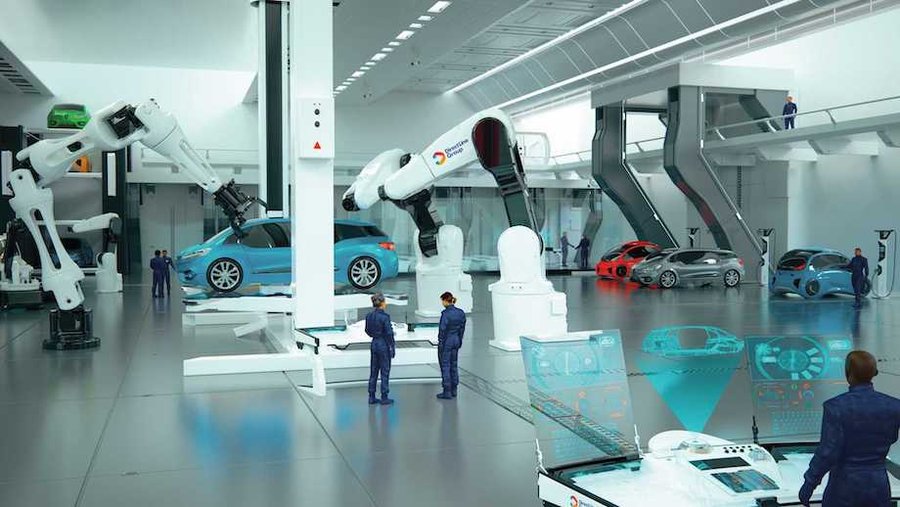A group of industry experts has collaborated to create their vision for the garage of the future after research revealed six in 10 people think automotive mechanics is "not for them".
Insurance company's Direct Line's study of more than 2,000 British adults found that 59 percent would dismiss working in a garage out of hand, while just a quarter (26 percent) of respondents would consider taking a job in vehicle maintenance. And the research suggests the industry might have a diversity problem as that number falls to just 19 percent for women.
In a bid to make the career more enticing – and to appeal to a wider audience – Direct Line has enlisted the help of a range of industry experts to show us how the garage of the future might look. Working with safety researchers Thatcham Research, smart city innovators DG Cities and the Women's Engineering Society, the insurance company has produced a list of future innovations, then put them into an artist's impression of how the industry will look in 2050.
As these images show, the experts predict widespread use of holographic and augmented reality technology, as well as advanced robotics to maneuver cars and 3D printing of parts to save time and money. The panel of experts also depicts a very different work environment from today's garages, with ultra-connected workshops and super-clean work areas. The garages are even expected to use lasers for welding, while the cars themselves will be able to diagnose their own faults.
"At Direct Line Group we're constantly looking at the changing landscape and technological advancements in the automotive industry to ensure that our garages are the best they possibly can be, both for our employees and our customers," said Felicity Harer, motor network technology specialist at Direct Line.
"It's really exciting to think that holographic and AR technology, advanced 3D printing, and connected vehicles that allow mechanics to find the route of a problem quickly, will begin to become a reality. We hope this glimpse of the future shows young people, in particular, the variety of careers that are evolving in engineering, and that it will encourage people from a wide variety of backgrounds to consider a career in this sector. With innovations like driverless cars within touching distance, there is a huge space for people to work in and shape the way repairs are performed on these vehicles and the technology needed to do so."
Elizabeth Donnelly, the CEO of the Women's Engineering Society, added: "It is fantastic that strides in technology have been made in repair garages, however, in order to make the automotive engineering sector more diverse and encourage more women to consider it as a viable career option, we must ensure that this starts with education from an early age. Curriculum traditionally tends to teach children about gendered careers from foundation level, which is perhaps why there are so few women in engineering. We hope through education and the exciting developments within the industry we can promote engineering as an exciting profession for all members of society."


Related News



